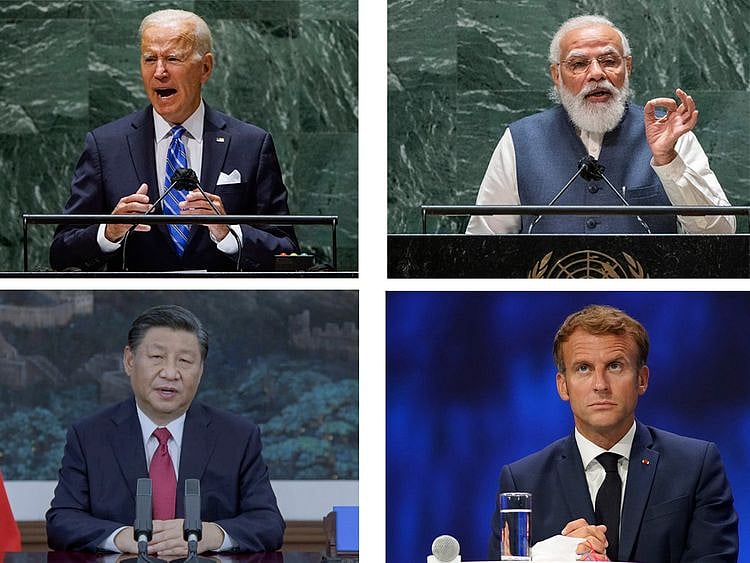On 23 September 2021, the UN Security Council held a high-level open debate on Climate and Security. For almost one and half a decade, climate change has been discussed and debated in the Security Council.
It started in 2007 when the UK used its prerogative as chair for the first time to introduce climate change in the Security Council debate in the context of energy.
The next open debate took place in 2011 and resulted in a presidential statement expressing concerns that the adverse effects of climate change may “aggravate certain existing threats to international peace and security.” Since then, several open debates and Arria-Formula meetings have been held in the Security Council on climate change and security.
However, the Security Council has yet to reach a consensus on incorporating climate-related security risks into its regular business. Among the permanent members, the UK and France have been supporting this initiative from the beginning.
Also Read
Why treaties have not ended river conflicts in South AsiaHow Afghanistan galvanises far-right extremismHow the War on Terror became a total failureIs the idea of BRICS relevant anymore?In their time as elected members of the Council, Sweden, Germany, and currently Norway have been forcefully pushing this agenda, at least for the last 6-7 years.
The Trump administration was reluctant, but the US has become a prime supporter of pushing the Security Council to include climate change within its agenda under the Biden administration.
Despite the acceptance of currently 12 of the 15 Security Council members of the seriousness of climate-related security risks in recent years, the consensus still eludes the inclusion of climate change on the Security Council agenda. Two veto-carrying members, China and Russia, have openly taken a stance against it, as India has as an elected member.
China argues that climate change is an issue of sustainable development, not a security issue. Russia argues that other UN agencies have already got the mandate to act on climate change, so entrusting the task to the Security Council will be counterproductive.
As its representative described in the open debate on 23 September, “Too many cooks spoil the broth”. Russia’s opposition is not as rigid but still sceptical about including climate change as it fears that it will stretch the mandate of the Security Council.
Despite their opposition to formally agree on bringing climate change to the Security Council agenda, Russia and China have taken various measures on their domestic fronts to prepare themselves against climate-induced security challenges.
They have also agreed to include the implication of climate change in different Security Council resolutions on several UN field missions since 2017, including on Lake Chad, Darfur, Somalia, Central Africa, Mali, DRC, and recently Iraq.
In this context, it is important to ask, is it prudent by some countries, during their monthly Council presidencies, to hold a signature event and insist on including climate change in the Security Council’s Agenda?
This approach certainly increases the risk of further enlarging the division among the Security Council’s permanent members in putting a joint front against the survival threats to the planet itself.
Serious concern for planet’s survival
There is no doubt that climate change has become a serious concern for this planet’s security and even survival. Climate change is having a tremendous impact on the livelihood of societies and poses challenges to the peace, security, and stability of countries at various levels.
In the early decades of its inception, the Security Council solely focused on war, armed conflict, and military threats. With the gradual broadening and widening of the security as a concept, the ambit of the Security Council focus has also expanded.
In the recent decades, its resolutions have covered human security challenges, protection of women and children from various pandemics and natural disasters. In this context, bringing climate change to the Security Council’s agenda can be seen as a natural development.
However, the business in multilateral forums is not that straightforward. Though the members are unanimous over the adverse security implications of climate change, a huge difference still exists about the Security Council’s role in addressing them.
While the Security Council has failed to keep a united front in raging conflicts like Myanmar, Tigray, Yemen, and Afghanistan, expecting it to be proactive in preventing future climate-induced conflicts is probably not wise.
The expectation is reasonable but not based on reality. Florian Krampe of SIPRI is right to argue that the Security Council can’t ignore climate change as 10 out of 21 ongoing UN peace operations are in the high-climate risk countries.
However, it is not what is right but what is the priority. Even if climate change is yet to come within the Security Council’s tasks formally, that has not stopped it from passing several resolutions in individual cases of peace operations.
The IPCC report released in August 2021 says it clearly that human activity is changing the climate in unprecedented and irreversible ways, and the UN Secretary-General even called the report ‘a code red for humanity’. The world at this time needs to come together to survive.
Climate change is the issue of survival. To pitch it in security terms divides the key powers within the international community, as China sees it as developed countries locking their sight on others.
The open debates are showcase events of elected Security Council members of Europe during their rotating Presidentship, more to brag about their achievement to their domestic audience, and not based on pragmatism.
To survive from the threats of climate change, the planet expects the Security Council to bring countries together, particularly the US and China, not to divide them further.
Network Links
GN StoreDownload our app
© Al Nisr Publishing LLC 2026. All rights reserved.
